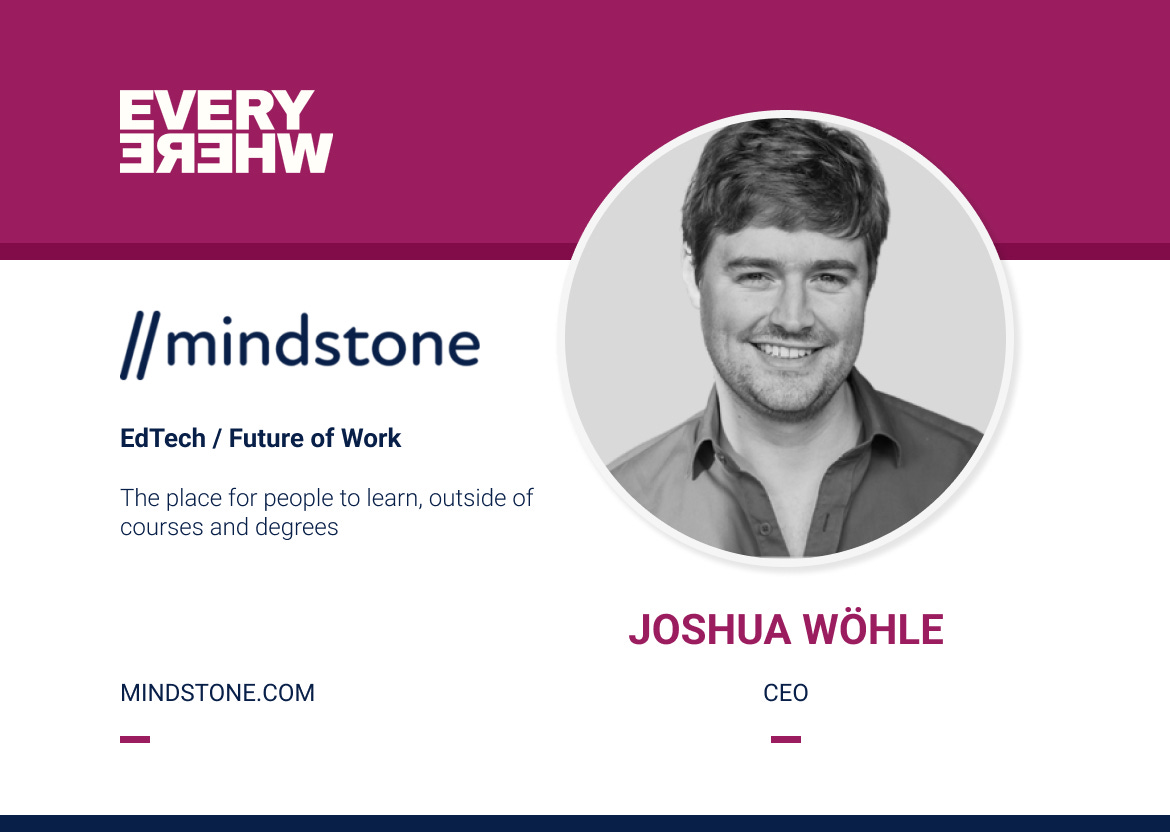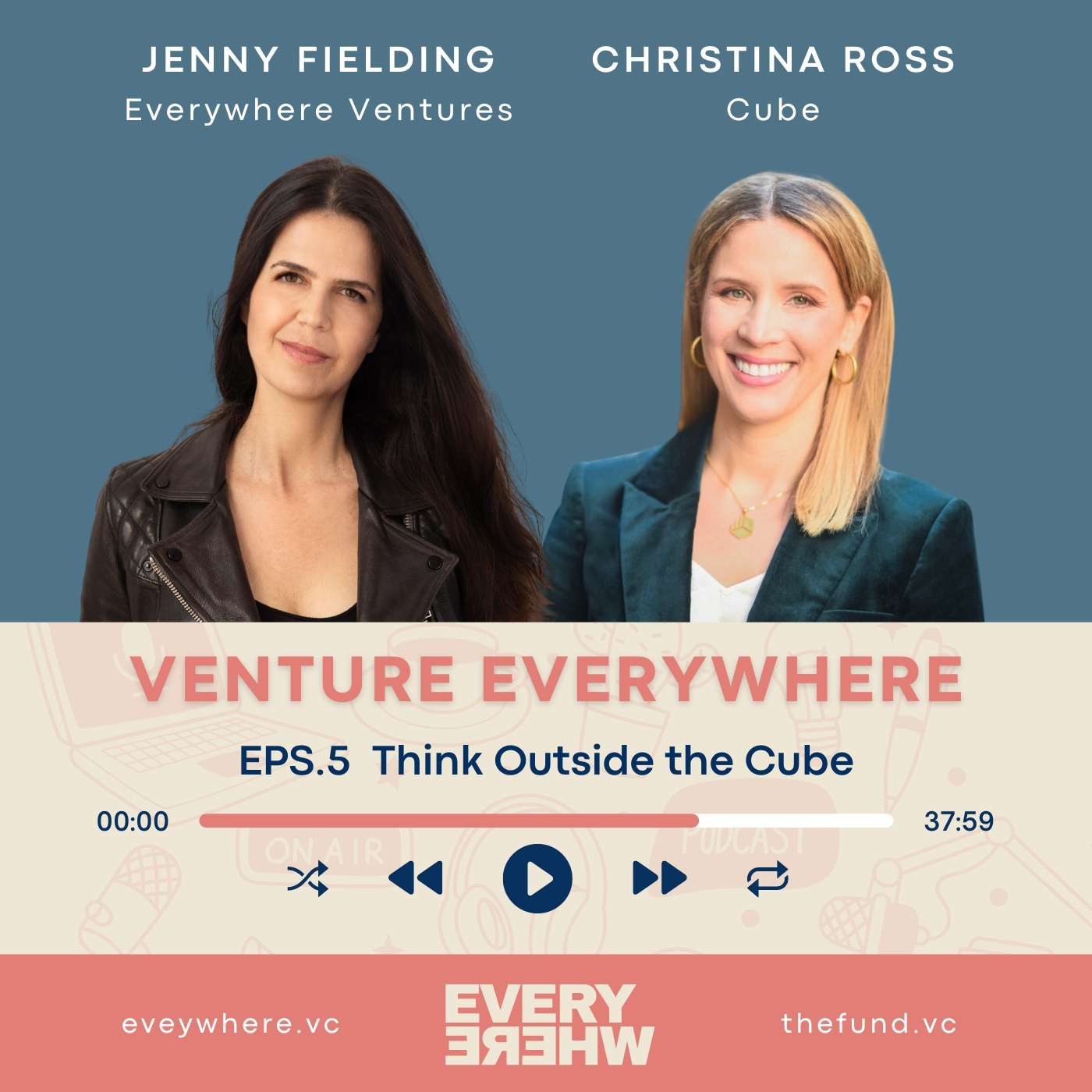Founders Everywhere: Joshua Wöhle
Joshua Wöhle is the co-founder and CEO of Mindstone, building the platform for people to learn, outside of courses and degrees, from all the articles, podcasts and videos they interact with daily.
Welcome to Founders Everywhere, where we highlight the incredible people behind the companies we’ve backed at Everywhere Ventures, a global pre-seed fund supported by a community of 500 founders and operators.
Learning is a lifelong pursuit that takes many forms beyond the traditional classroom setting. In today’s fast-paced world people are constantly seeking knowledge and skills for personal and professional development and growth. With advancements in technology and easy access to information, alternative modes of learning have emerged for those seeking flexible and personalized approaches to education. Mindstone is a platform helping people become better learners, enabling them (and humanity as a whole) to push back at the limits of what they can become.
In 2020 co-founders Joshua Wöhle, Florian Zysset, and Stefan Keranov founded Mindstone with the belief that the current system of valuing degrees and qualifications needs to be re-evaluated. There’s an abundance of content out there that’s accessible to everyone and Mindstone is changing the way people learn and prove that knowledge. Prior to Mindstone, Josh was the co-founder and CPTO of SuperAwesome, the biggest kid-tech company in the world, where he worked with Florian and Stefan. After SuperAwesome sold in 2020, they built Mindstone to help people become better learners. They believe everyone should have the opportunity to learn, grow, and reach their full potential, regardless of background or circumstances.
What is Mindstone’s North Star?
Our North Star is to remove barriers to learning. We want to build a world where opportunity is not determined by who you know and where you came from, but based on your willingness to learn.
How does Mindstone inspire “customer love”?
We’re helping our users create a habit of learning. For many people learning can be an intimidating and difficult process. Our goal is to make the process more accessible to everyone. The internet provides endless opportunities for growth, but it can be daunting to know where to start. Our product encourages people to take ownership of their own learning and to make it a routine part of their lives.
How does Mindstone work?
We have a three step process:
You take all the interesting content you find from anywhere online and save it to our platform, so it’s all saved and aggregated in one place.
We help you build the habit to actually learn from the content you’ve saved, to help you draw links and figure out what's important and what's not.
Step three is actually evidencing your learning. As you go through all this content, Mindstone automatically creates a record of what you’ve learned that you can submit with your next job application or show to your manager to get a promotion.
We’re excited about the potential of Mindstone to help users achieve the learning targets that they’ve set for themselves.
Any advice for other founders?
It’s so important to be persistent, especially when it comes to chasing emails. I’m based in London and lived in Switzerland for 10 years and it was considered impolite to chase someone over email. After spending time in the US and dealing with more emails in a work setting, I’ve learned there are usually two reasons why someone doesn’t reply: either they assume that if it’s important, it will come back around or they’re just overloaded. I've had to get comfortable with following up multiple times, even if it feels awkward, because often people do want to engage but just need a reminder. I’ve realized that it's better to err on the side of assuming someone might be interested in what I have to offer.
Any favorite books?
I absolutely love Creativity, Inc.: Overcoming the Unseen Forces That Stand in the Way of True Inspiration by Ed Catmull and Amy Wallace about the creation of Pixar. I also found Who Says Elephants Can't Dance by Louis V. Gerstner, Jr to be very interesting. It’s about the turnaround of IBM and how it went from a hardware to a software company and how you move a company of hundreds of thousands of people.
Check out Episode 5 of the Venture Everywhere podcast, Think Outside the Cube with Jenny Fielding and Christina Ross. Listen on Apple, Spotify, Stitcher and check out all our past episodes here.


